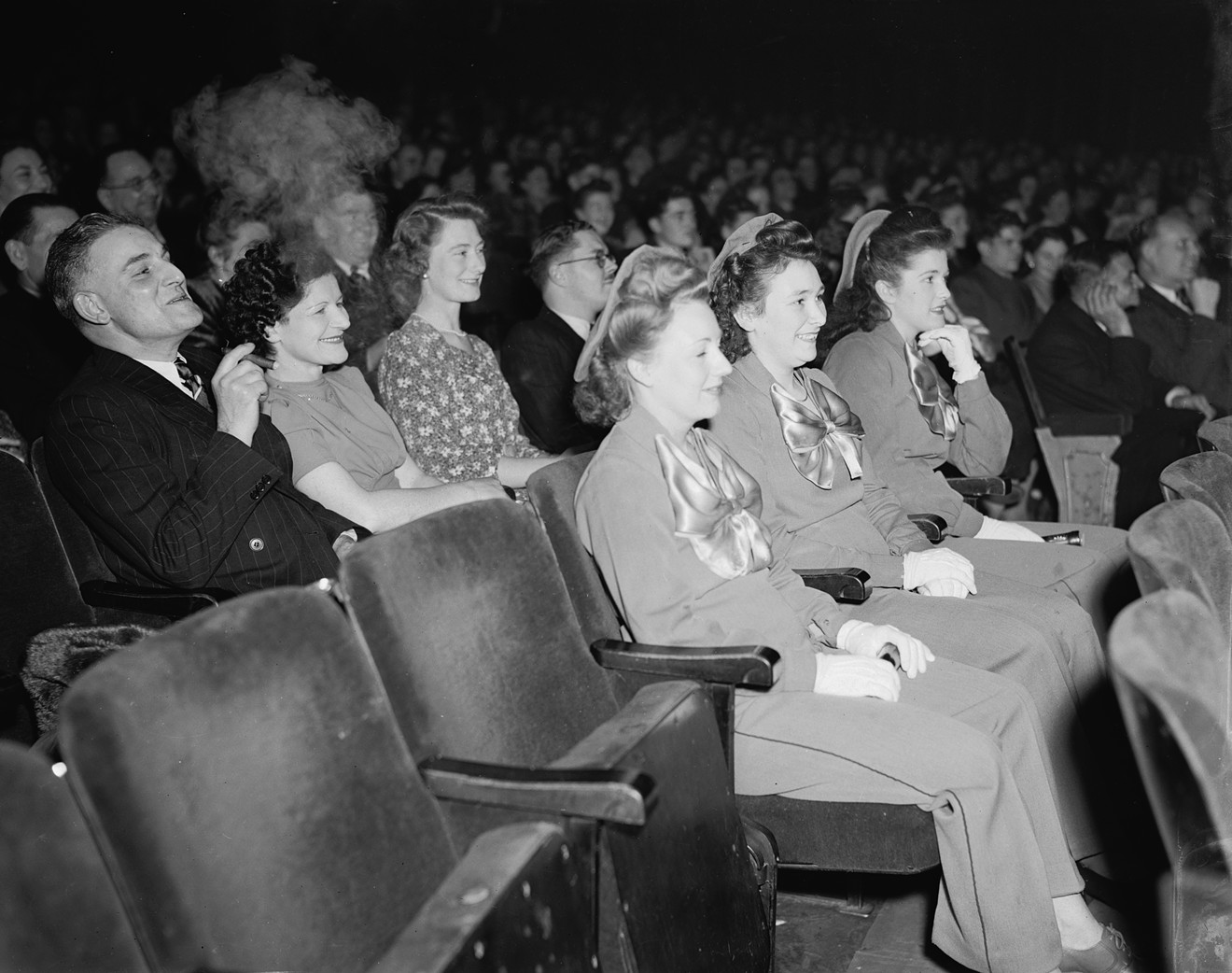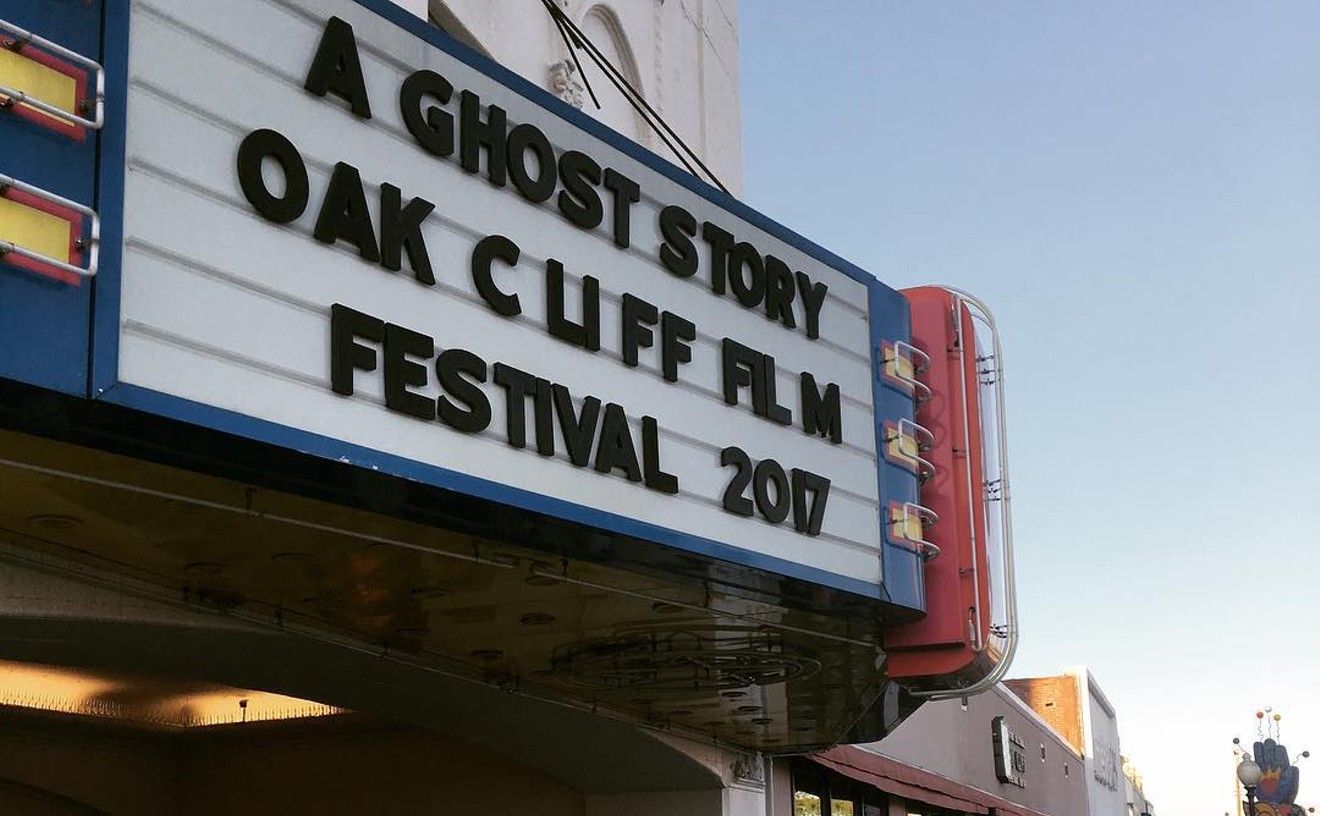Thin Line Fest will be happening Wednesday-Sunday, March 25-29, and Dallas VideoFest’s Alternative Fiction will take place April 3-5.
Josh Butler, founder of Thin Line, says the response to keep the festival going has been positive. Of the 28 films originally slated to screen at the Denton-based festival, where general admission is free, 20 have agreed to livestream, with all 38 shorts also on board. In addition, viewers can expect a seamless switch into a filmmaker Q&A using a text-based tool that allows attendees to submit questions online.
“The overwhelming majority of filmmakers were grateful that we’re finding a way to persevere,” Butler says, adding that festival sponsors were understanding and committed to continuing their support.
“Right now, my registration is really going gangbusters. Clearly, we have an adaptive audience. People are stuck at home without much to do. People are looking for engaging content.”
Butler, 39, has worked in the virtual event space for the past decade. Along with Bill Mott, he also owns Falcon Events, which helps produce online events. A few years ago, he tried to mesh streaming technology with the festival but didn’t get the response he’d hoped for.
“We had the technology and skills to make this [virtual film festival] happen,” Butler says. “I felt like this was the perfect convergence of kind of all areas of my life, and I couldn’t pass it up.”
Butler is concerned that if filmmakers don’t get their content out to the public now, they may not get another chance, because another round of films set for release will arrive in the fall.
“This is almost going to be a moment in time that’s forgotten in terms of creative content,” he says.
Jeffrey Brown, producer of Cowboys: A Documentary Portrait, which trails working cowboys on some of America’s largest ranches and is playing Thin Line Fest, says in the event’s press release that “with most other spring festivals canceling or postponing, Thin Line 2020 is a bright spot in the current festival landscape.”
Butler says Falcon Events is also making it easy for other events to piggyback on the virtual festival.
“When [SXSW] canceled, we were all freaking out,” says Bart Weiss, an associate professor of film at the University of Texas at Arlington and founder of Dallas VideoFest. “All of us, everybody that has a festival or a screening situation, we were trying to figure out what we could do and trying to figure out how we were going to pull it off.”
Weiss, who also produces KERA’s Frame of Mind, a series highlighting Texas indie films, says DVF was originally scheduled to take place at the Dallas Holocaust and Human Rights Museum, which has a 250-seat theater.“This is almost going to be a moment in time that’s forgotten in terms of creative content.” — Josh Butler
tweet this
“Then it became really clear to me that it was socially irresponsible to have an event where a whole bunch of people are gathering together and someone could get the virus,” he says, adding that when he learned of Thin Line’s plans to screen online, it was also clear that DVF needed to do the same.
“It is very important that people see films and be inspired by films,” Weiss continues. “It’s also important to not put people's lives in danger.”
Weiss has taught filmmaking for more than 30 years and has spent the last week figuring out how to do an online seminar that would meet the needs of students who will have to use cellphones to make movies rather than the advanced cameras and mics they would typically check out.
“It’s going to be really interesting to see how the next few months play out,” he says. “There are a lot of things for us to learn, a lot of mistakes to be made and a lot of opportunities to, you know, learn differently. We’re all trying to figure this out.”
Weiss says DVF’s current focus includes a selection of work from Femme Frontera, a collective of female filmmakers from the U.S.-Mexico border region as well as a collection of Jewish shorts, a series of films created on mobile devices and other works that explore “how we can push forward on the edge of the possibilities of what we think narrative films are.
“We’ve been exploring different technology and how it can change the experience of going to a festival since 1987. Going online and trying to extend the festival experience online is very much in keeping with what we do. … When we come up with a problem, we like to find a technical solution of how we can make this work, and that is what we’ve done, in a sense, in this case.”
For more information, visit ThinLine.us and VideoFest.org.











